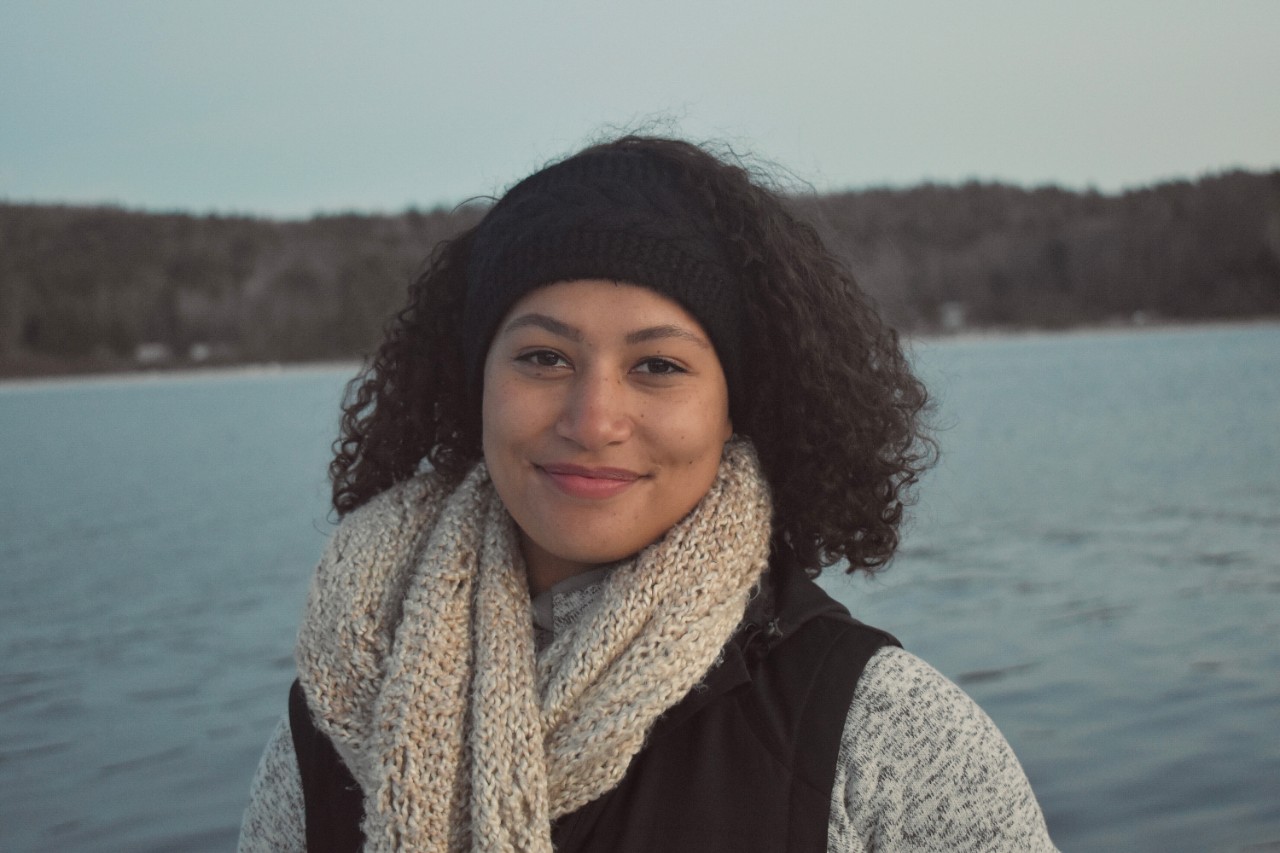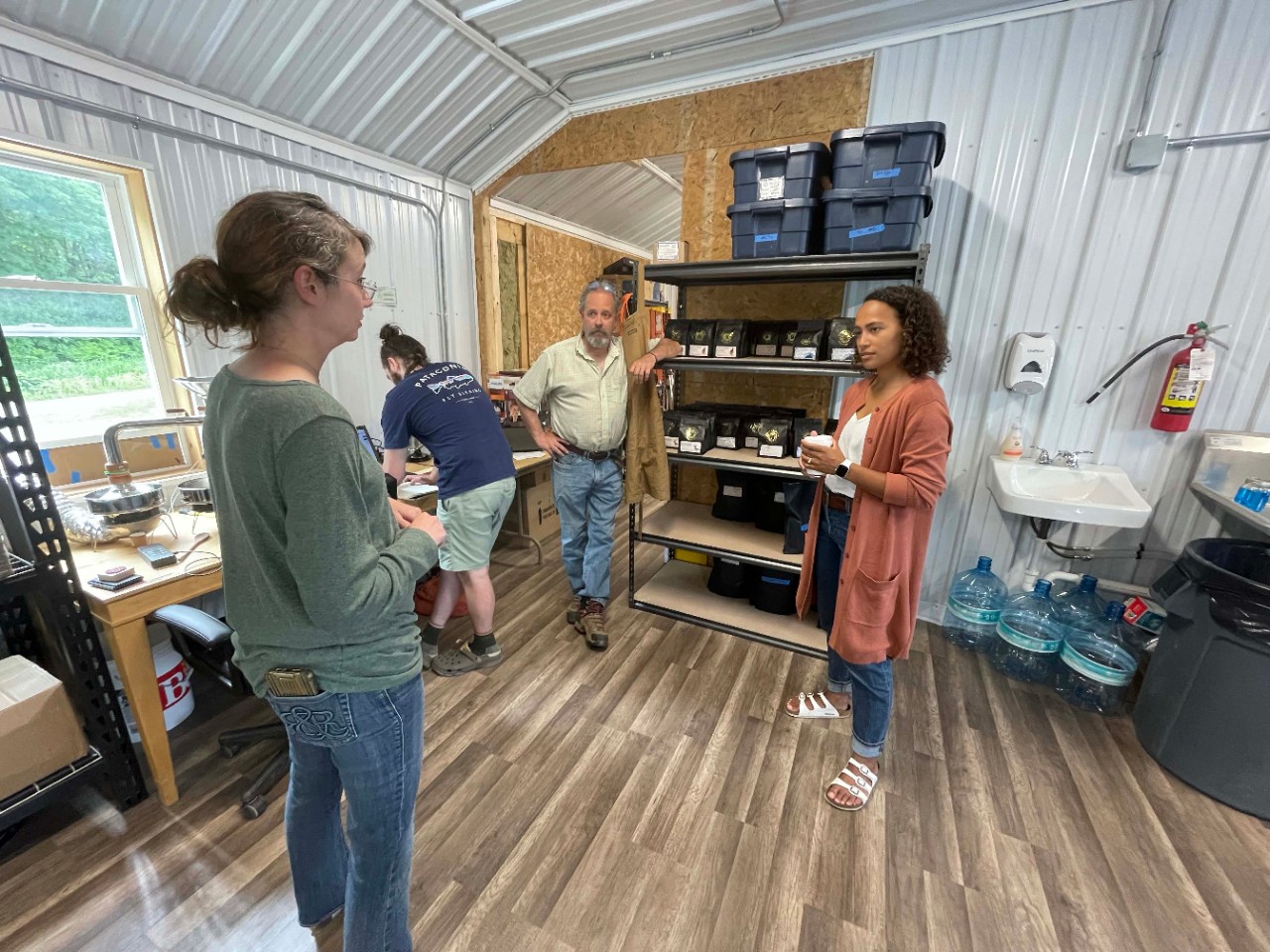
Sianay Chase Clifford. Courtesy photo.
When Sianay Chase Clifford cold calls voters in Vermont, she introduces herself, asks them what they care about, and then listens to what they have to say.
It’s a strategy she’s using in her pursuit of the Green Mountain State’s sole seat in the House of Representatives—and one she honed as a master’s student in the Boston College School of Social Work.
“Being able to take myself out of a conversation and just listen is a direct tribute to my training in social work,” says Chase Clifford, a 2020 graduate of BCSSW who is vying to become the first woman in Vermont to be elected to Congress. “I really learned how to listen to people, especially folks who have very different opinions than I do.”
Chase Clifford believes that lay people should have a say in the policies that affect their lives, a philosophy that took shape when she was examining the Temporary Assistance for Needy Families program for a policy analysis course at BC. The program showed her that “our government really does look at poor people as fundamentally undeserving,” she says, and made her realize that progress comes when legislators view those in need in a more favorable light.
“Unconditional positive regard is a real cornerstone of my platform,” says Chase Clifford, who studied in the Children, Youth, and Families field of practice. One of the central questions driving her candidacy is: “How do we build a policy environment that, instead of failing you, is actually built around your personal circumstances and actually helps you thrive?”
“There needs to be more progressive political capital on the Hill so we can move the needle on really important policy areas.”
Chase Clifford is facing some steep competition in the race to become Vermont’s first congresswoman—two of her three challengers in the Democratic primary in August are women who have already been elected to political office. But she is hoping her personable approach to getting to know her potential constituents will sway voters to cast their ballot for her.
Chase Clifford has been crisscrossing Vermont on the campaign trail since announcing her candidacy in March, asking people questions like “What keeps you up at night?” and “Where do you feel like your community needs more support?” And she says her political priorities—fighting for universal healthcare, tackling climate change, creating affordable housing for all—have resonated with the voters.
“Being able to understand the state I grew up in in a different way, being able to engage in communities in a different way, has been such a treat,” says Chase Clifford. “I have a lot of people who come up to me and say, ‘I don’t really agree with progressives, but I heard you talk and I really liked what you had to say.’”
She credits her drive to improve the lives of her fellow Vermonters to two things: her parents, who fled Liberia in the midst of its first civil war, and her year-long stint on Capitol Hill, where she worked as an aide to Rep. Ayanna Pressley.
Her father joined the Peace Corps in Liberia because he “felt a call to service,” she says, and has worked as a public school teacher in Vermont for 30 years. Her mother, a licensed nursing assistant, works in respite care and routinely pulls double shifts.
“They’ve always been hustling to make a life for us,” says Chase Clifford, the youngest of her parents’ five children. “But also a real part of that is just their consistent dedication to service, which imprinted on me in my earliest years.”

Sianay Chase Clifford, far right, talks to a potential constituent on the campaign trail. Courtesy photo.
Chase Clifford served Pressley for a year following her graduation from BCSSW, helping to write legislation, distill complex reports, and conduct research on topics like the maternal health of Black women. But what really made an impression on her—what really compelled her to toss her hat in the ring—was seeing the lack of urgency with which traditional politicians worked to solve the problems of everyday Americans.
“There needs to be more progressive political capital on the Hill so we can move the needle on really important policy areas,” says Chase Clifford, whose role on Pressley’s team was supported by a fellowship from the Congressional Black Caucus Foundation, a nonprofit public policy, research, and educational institute that seeks to advance the Black community. “In far too many of our issue areas, there is just not that understanding of urgency or just a kind of apathy.”
If elected to the House, she plans to hold “legislative check-ins” with constituents to give them a chance to help shape the bills she’d be working on. Her goal is to bring two things to Congress that she has found to be missing among many policymakers on the Hill: clear communication and transparency. “I really want folks to be part of the legislative process,” she says. “I want to be able to say, ‘here’s the legislative text we have so far. What do you think of it?’”
Her first order of business if she wins the election? Building a diverse staff that includes community organizers, Black women, and farmers from Vermont. “I want to build a staff that is really driven by lived experience and an understanding of the urgency of the policy we need to pursue,” she says.


